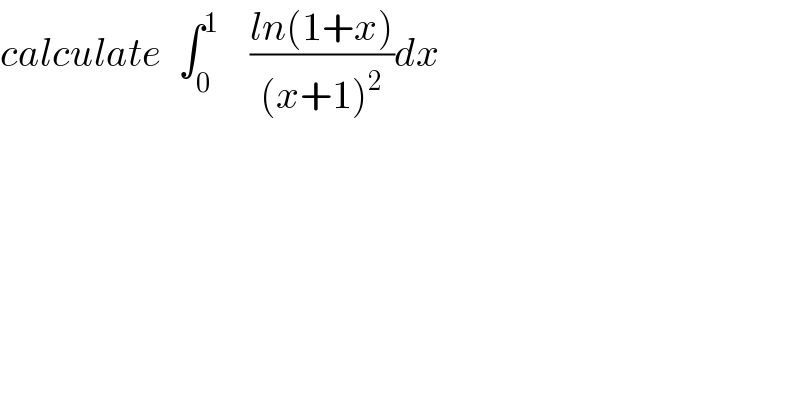
Question and Answers Forum
Question Number 91271 by mathmax by abdo last updated on 29/Apr/20

Commented by mathmax by abdo last updated on 29/Apr/20
![I =∫_0 ^1 ((ln(1+x))/((x+1)^2 ))dx by psrts we get I =[−(1/(x+1))ln(x+1)]_0 ^1 +∫_0 ^1 ((ln(x+1))/(x+1))dx =−(1/2)ln(2) +∫_1 ^2 ((lnt)/t) dt (x+1=t) ∫_1 ^2 ((ln(t))/t) dt =_(lnt =u) ∫_0 ^(ln(2)) (u/e^u )e^u du =∫_0 ^(ln(2)) u du=[(u^2 /2)]_0 ^(ln(2)) =(1/2)ln^2 (2) ⇒ I =−(1/2)ln(2)+(1/2)ln^2 (2).](Q91319.png)
Answered by M±th+et+s last updated on 29/Apr/20

Commented by mathmax by abdo last updated on 29/Apr/20

Commented by M±th+et+s last updated on 29/Apr/20

Commented by mathmax by abdo last updated on 29/Apr/20

Commented by M±th+et+s last updated on 29/Apr/20

